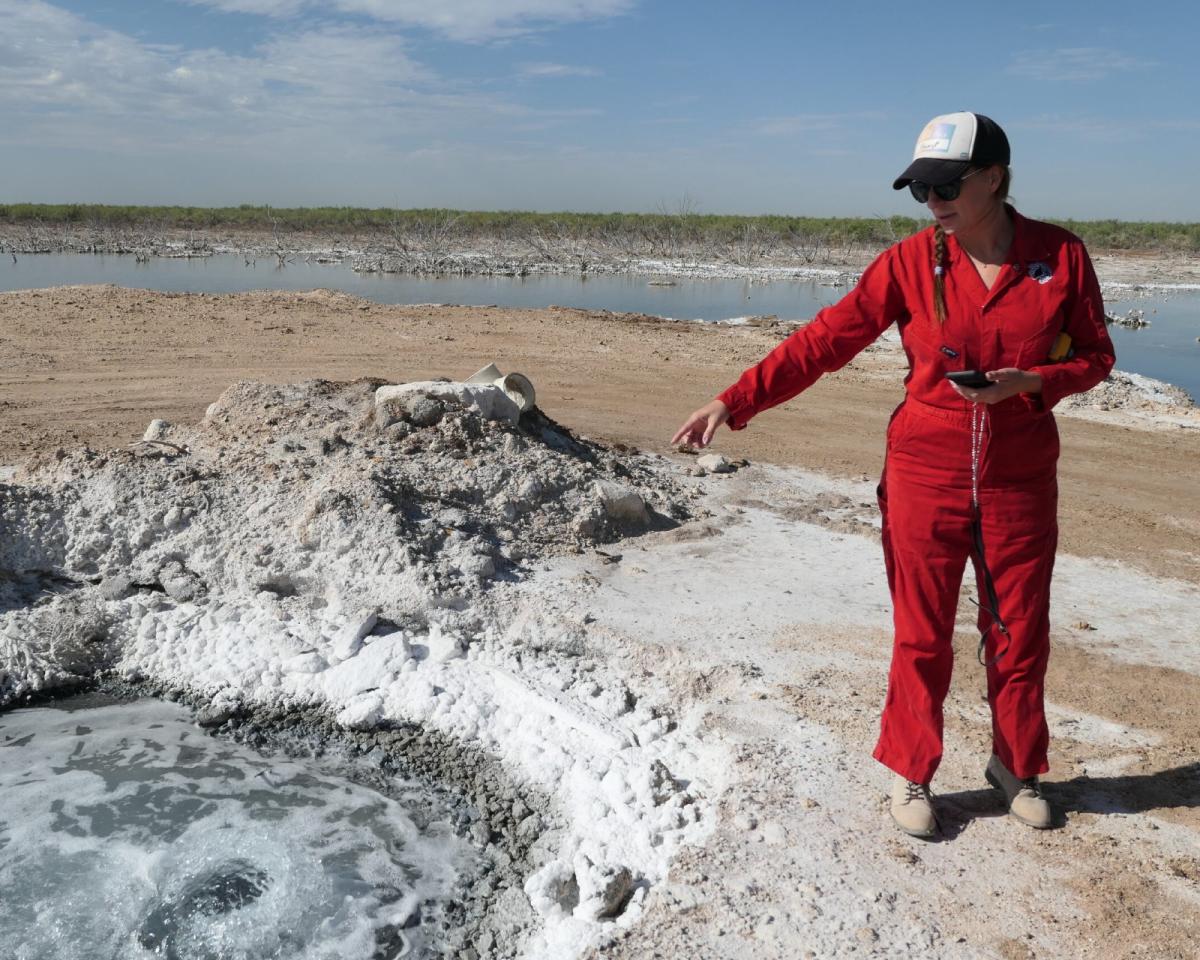This story was originally published by Inside Climate News and is reproduced here as part of the Climate Desk collaboration.
The prolific oil and gas wells of Texas also generate billions of gallons of salty liquid known as produced water. A lot of this toxic water, just like crude oil, tends to get spilled.
Not just occasionally, but hundreds of times a year. From a large spill of 756,000 gallons into the Delaware River in West Texas that sent chloride levels soaring, to hundreds of small spills in one Permian Basin county, there’s hardly a corner of Texas not impacted. But messy record-keeping and ambiguous rules at the Railroad Commission of Texas, which regulates oil and gas drilling, have long obscured the scope and severity of these spills from the public.
The Railroad Commission has never formally adopted 2009 draft guidelines for reporting and cleaning up produced water spills. The agency delegated the authority to set different reporting thresholds to district offices, in a system that relies on self-reporti... Read more
